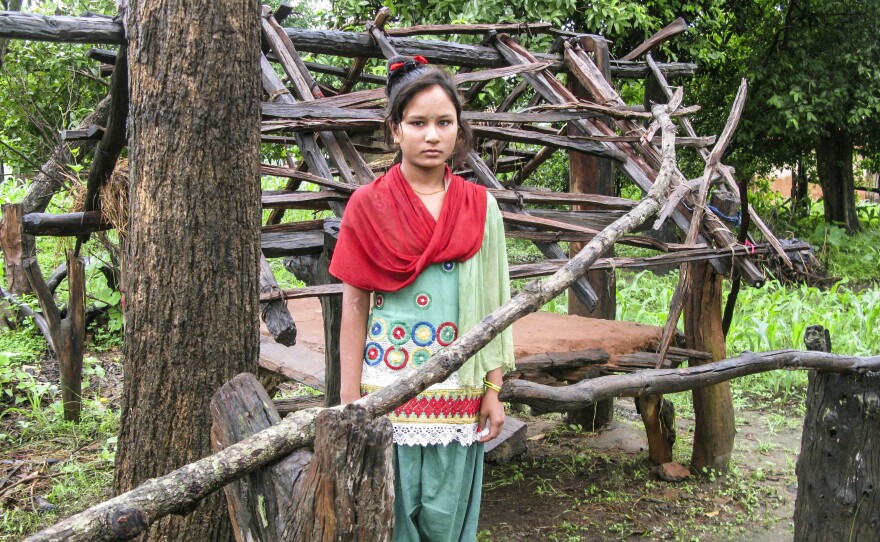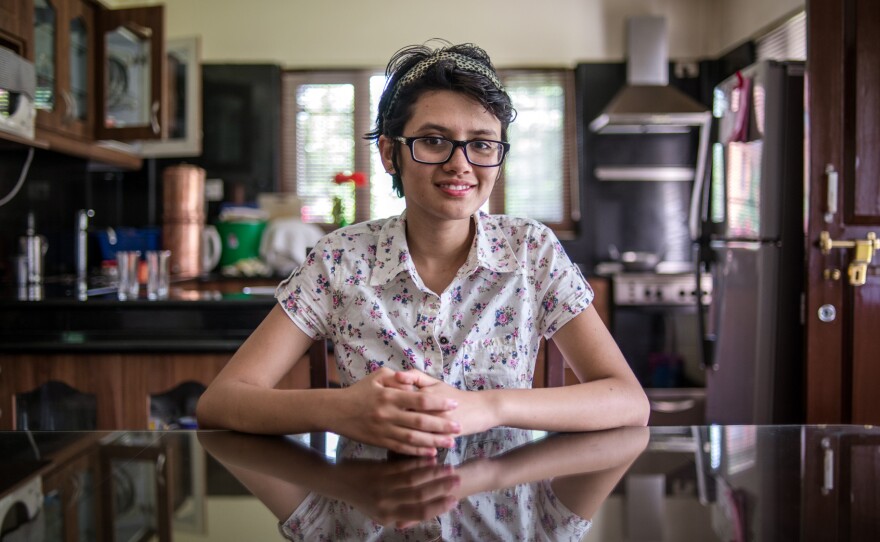

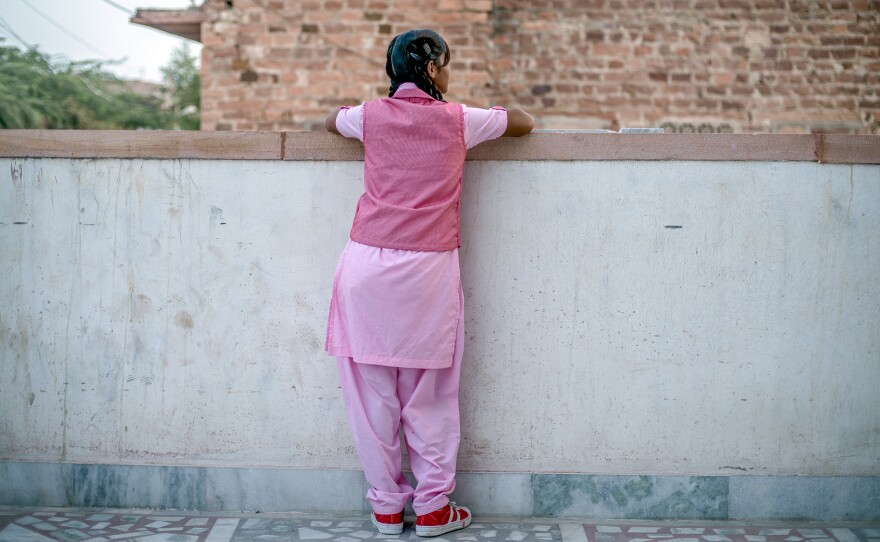
![Soccer pals Lahis Maria Ramos Veras, 14 (left), and Milena Medeiros dos Santos, 16, don't let taunts keep them from playing. Milena on soccer: I hope it does bring me somewhere but even if I don't become a [professional] soccer player I want to be a happy person."](https://cdn.kpbs.org/dims4/default/9558f85/2147483647/strip/true/crop/1531x943+72+0/resize/880x542!/quality/90/?url=http%3A%2F%2Fkpbs-brightspot.s3.us-west-2.amazonaws.com%2Fassets%2Fimg%2F2015%2F11%2F10%2Fsoccergirls-9_wide-92c3a2b120d8a1382ec75f5354af7743d07f63f1.jpg)
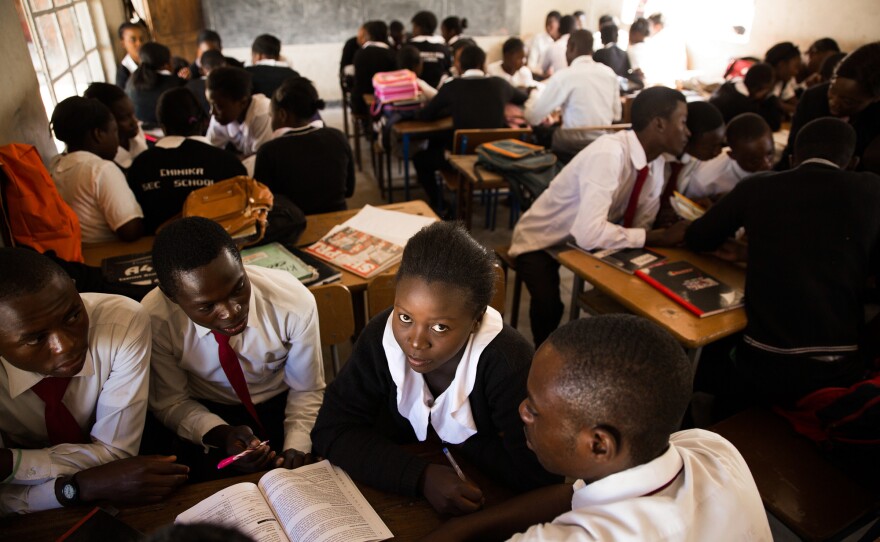
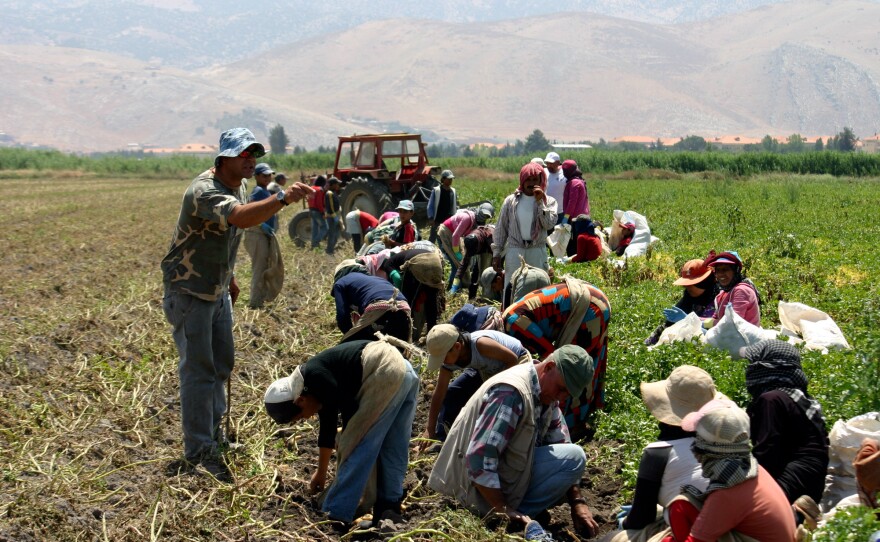
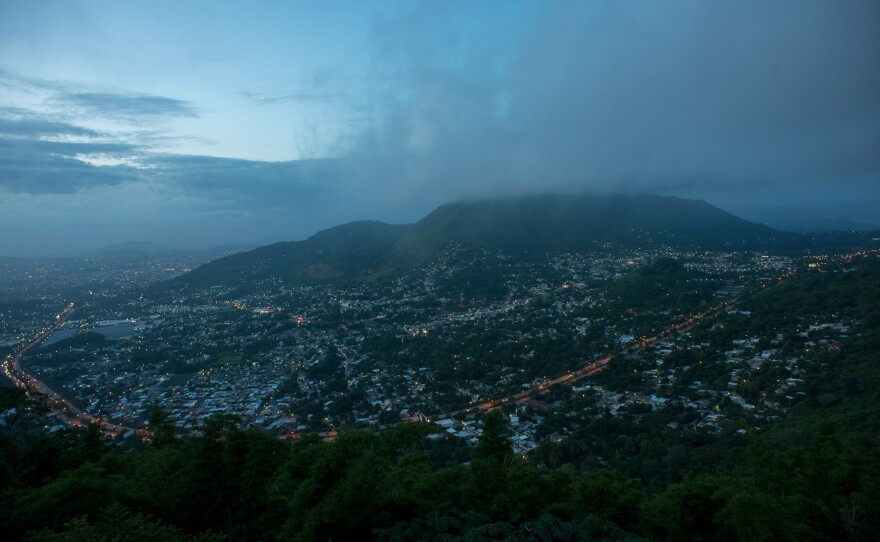
What's it like to be a 15-year-old girl, full of dreams but not sure how to make them become reality?
That's a question that NPR explored this fall in our series #15Girls. We sent reporters around the world. We met girls who faced all kinds of obstacles: gang violence, child marriage, unaffordable tuition fees. And we learned the plans they hatched to get ahead.
We asked our correspondents to share a moment that was critical in their reporting — a person they met, a scene they witnessed that helped shape the story they told.
Nepal: So Much Worse Than I Expected
It was starting to get dark, and we were waiting for Kamala to come home after a day working in the fields. It was the fifth day of her period and I noticed a tin plate lying in the grass outside her house — this is where she eats because she's not allowed inside. She brought her friend along for the 10-minute walk to her shed, where she has to sleep when she's menstruating.
I'd already seen a few of the sheds scattered around the village, but I wasn't prepared for Kamala's. Most have thatched roofs and some have walls to give some protection; Kamala's did not. No walls, no roof, a small puddle of water in the middle from last night's monsoon.
Pragya Lamsal, a Nepali who was translating for me, and she was shocked too. "It's very small, there's no cover. Staying here every month — it's traumatic," Lamsal said.
We felt we were adding to Kamala's trauma by standing there asking her questions, so we stopped. But at that moment I understood what Pragya had told me earlier: This is not a cultural issue. It's a human rights issue.
Meeting The Malala Of Menstruation
From the beginning Prakriti stood out. We were meeting a group of 15-year-old girls in a school library in Kathmandu. We wanted to talk about periods — not the easiest topic to discuss with strangers. We started by asking about other things — school and hobbies. The girls were quiet and our hearts sank. Then we asked what happens when you get your period? One girl's hand shot up immediately. She introduced herself as "a rebel." In the circle of teenage girls, she was the only one who wore her hair short. Prakriti is supposed to follow menstrual rules but often ignores them.
The moment she started speaking we knew we had found our girl. Not just the girl for our #15Girls series, but the girl who could change things. She's a rebel who uses reason and education to fight back. She knows biology and she knows menstruation doesn't make her impure or sinful. She's even writing a novel about menstruation.
We were expecting it to be the men who ostracized women during their periods, but the city and village girls told us it's their grandmothers who enforce the rules. And it will be the younger women who change things.
-Jane Greenhalgh and Michaeleen Doucleff
Afghanistan: "I Just Want To Punch Them In The Face!"
Layli muttered the comment, almost whispered it. I nearly missed it in the din of a half dozen teenagers talking over each other. I had asked the girls what it was like when they walked to school. The loudest girls in the group informed me that, well, they walked in a group because boys and men yelled mean things at them along the way. Most of the girls in the group shrugged it off — either resigned or pragmatic or both. One girl pointed out that if she yelled back, she'd be blamed for starting an argument. Another girl said it didn't bother her, even though her wide eyes seemed to suggest otherwise.
That was when Layli muttered something angrily in the corner. She was slouching, but when I asked her to repeat it, she sat up and said, "I just want to punch them in the face!" And then something happened — all the girls laughed and nodded. Every single one of them felt the same way. The harassment did bother them, and it wasn't okay.
-Rebecca Hersher
India: School's Not Her Thing But Could Be Her Salvation
We always planned to explore the issue of child marriage through an in-depth look at the experience of one girl. And initially, we wondered if the most compelling case might be a girl at the top of her class — a brilliant student whose potential was at risk of being wasted through early marriage.
Sure enough, when we arrived at the Veerni Institute we met a number of girls who were excellent students and whose stories affected us deeply. Then we were introduced to Nimmu. She was vivacious and witty, with a dry, even cheeky, sense of humor. She was engaged and curious, bursting with as many questions for us as we had for her. And we were fascinated by her relationship with her father, who had married her off when she was 10, yet who was now bravely fending off her in-laws so Nimmu could stay in school.
It was when Nimmu told us that she was not, in fact, a particularly good student, that we knew for sure that this was the girl whose story we had to tell. She gave a rueful laugh as she made her confession. But there was an anxious edge to her voice.
This March, Nimmu has to take a tough national exam. If she doesn't pass, she can't continue with high school, and it will become much harder for her father to resist the pressure to send Nimmu to her husband's house.
Hearing Nimmu talk about this, we were struck by how similar she is to so many American teens who may be gifted in all sorts of ways but don't happen to be academically inclined. High school can be challenging for these kids too, yet they have many other opportunities to flourish as adults. For Nimmu the stakes are so much higher.
-Nurith Aizenman and Vikki Valentine
Brazil: Girls In A Slum Who Are The Opposite Of Grim
We were up on the flat roof of Lala's cramped cinderblock house in the Rocinha favela, one of Rios roughest and largest slums. It was the only place open enough to accommodate all of us as we sat around and talked. Right beside Lala was her good friend Milena. Lourdes and I had come to Rio to profile these two soccer-playing teenagers, who defy the idea in Brazil that soccer just isn't a sport for girls.
The rooftop was disheveled. There was an electrical box nearby with all sorts of dangling wires, which people use to poach electricity. At one point an explosion of what sounded like gunshots had Lourdes and me ready to duck for cover. But the girls just smiled as Lala's mother calmly pointed out that this was merely the drug traffickers setting off fireworks to alert their gang that the police were preparing to make a sweep.
Rocinha is dark and dangerous and full of people living on the fringes. It is the kind of place that usually makes it into the news for something grim.
But Lala and Milena are the opposite of grim. As we chatted with them on that roof, we became enchanted with their hopeful, ebullient personalities and their fierce determination, even at this young age, to make something of their lives. It was such a pleasure to get to know these girls and have them dispel a few stereotypes.
-Peter Breslow and Lourdes Garcia-Navarro
Zambia: It Turns Out Sons Aren't Really Favored Over Daughters
We went to Zambia to look at a research study about whether negotiation training would help girls stay in school. We figured one of the main obstacles that the girls would be negotiating around was a cultural bias in favor of boys. Zambia is a poor country. Girls drop out at higher rates than boys. We imagined this might be in large part because parents invested their limited resources in their sons rather than their daughters.
The reality for students in Zambia isn't so simple. None of the girls we met complained about their parents favoring their brothers over them. (Others even pointed out that educated Zambian girls fetch higher dowries!) If anything, parents expected much more from their daughters. They expected them to do many household chores — cleaning, cooking, taking care of younger children — besides their schoolwork. Girls were more vulnerable to dropping out because their family and their school obligations were in conflict.
That's what made this negotiation program so interesting. Girls were literally learning tools to renegotiate these expectations — and sometimes get their own siblings to take on more of the work — so they could give priority to their studies.
-Laura Starecheski and Gregory Warner
Syrian Refugees: A Child Is Beaten In A Potato Field
Before we went to Lebanon to look for a 15-year-old Syrian refugee to profile, I thought this was going to be a story about loss. What does it feel like to flee your country, to lose your school, your home, your friends, your life as a student? We'd heard that a lot of refugee kids were working in agricultural fields in Lebanon's Beqaa Valley picking crops. We figured this was hard, tedious labor but it was far worse than that. One morning in a potato field, the foreman was whipping an 8-year-old boy with a plastic hose. The child was in tears. Everyone else looked away. That's when we realized how trapped and desperate these Syrian refugees had become — and how hard it would be for the 15-year-old girl we met, Fatmeh, to realize her "very small, small hope — I really want to go back to school."
-Jason Beaubien and Rebecca Davis
El Salvador: The Girl With No Name
During my assignment with Kelly McEvers in El Salvador, there were a lot sobering, larger than life moments which shed light on the horrific violence that women in the region suffer.
The story of the girl whose name we could not say on the air was the most difficult story I've ever been a part of.
She's 13 years old, and her father, a gang member who is in prison, is extorting the family for tens of thousands of dollars. He's threatened to rape and kill the girl if they don't pay up. He gets out of prison next year.
So here was this tiny girl crying in terror, telling us she didn't want to get raped and killed.
I'm usually really good at disconnecting from the story at the end of a day on assignment. I talk to a friend or my boyfriend, I turn off my electronic devices, and here's a nerdy little secret: I always carry a comic book with me to read, even just for 5 minutes, before I fall asleep. It's something I've learned to do to keep sane and keep doing my job well.
I didn't even want to disconnect from this story, because in a weird way I felt like I would be letting go of the girl with no name.
-Jasmine Garsd
Copyright 2015 NPR. To see more, visit http://www.npr.org/.


